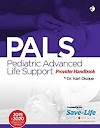What is auto insurance?
Understanding auto insurance—the basics
Auto insurance is a contract between you and the insurance company that protects you against financial loss in the event of an accident or theft. In exchange for your paying a premium, the insurance company agrees to pay your losses as outlined in your policy.Auto insurance provides coverage for:
Property – such as damage to or theft of your car
Liability – your legal responsibility to others for bodily injury or property damage
Medical – the cost of treating injuries, rehabilitation and sometimes lost wages and funeral expenses
Basic personal auto insurance is mandated by most U.S. states, and laws vary. Auto insurance coverages are priced individually (a la carte) to let you customize coverage amounts to suit your exact needs and budget.
Policies are generally issued for six-month or one-year timeframes and are renewable. The insurance company sends a notice when it’s time to renew the policy and pay your premium.
Who is covered by my auto insurance—and under what circumstances?
Your auto policy will cover you and other family members on your policy, whether driving your car or someone else’s car (with their permission). Your policy also provides coverage if someone who is not on your policy is driving your car with your consent.Your personal auto policy only covers personal driving, whether you’re commuting to work, running errands or taking a trip. It will not provide coverage if you use your car for commercial purposes—for instance, if you deliver pizzas.
Personal auto insurance will also not provide coverage if you use your car to provide transportation to others through a ride-sharing service such as Uber or Lyft. Some auto insurers, however, are now offering supplemental insurance products (at additional cost) that extend coverage for vehicle owners providing ride-sharing services.
Is auto insurance coverage mandatory?
Auto insurance requirements vary from state to state. If you're financing a car, your lender may also have its own requirements. Nearly every state requires car owners to carry:Bodily injury liability – which covers costs associated with injuries or death that you or another driver causes while driving your car.
Property damage liability – which reimburses others for damage that you or another driver operating your car causes to another vehicle or other property, such as a fence, building or utility pole.
In addition, many states require that you carry:
Medical payments or personal injury protection (PIP), which provides reimbursement for medical expenses for injuries to you or your passengers. It will also cover lost wages and other related expenses.
Uninsured motorist coverage reimburses you when an accident is caused by a driver who does not have auto insurance—or in the case of a hit-and-run. You can also purchase underinsured motorist coverage, which will cover costs when another driver lacks adequate coverage to pay the costs of a serious accident.
Even if PIP and uninsured motorist coverage are optional in your state, consider adding them to your policy for greater financial protection.
What other types of auto insurance coverage are typical?
While most basic, legally mandated auto insurance covers the damage your car causes, it does not cover damage to your own car. To cover your own car, you should consider these optional coverages:Collision reimburses you for damage to your car that occurs as a result of a collision with another vehicle or other object—e.g., a tree or guardrail—when you’re at fault. While collision coverage will not reimburse you for mechanical failure or normal wear-and-tear on your car, it will cover damage from potholes or from rolling your car.
Comprehensive provides coverage against theft and damage caused by an incident other than a collision, such as fire, flood, vandalism, hail, falling rocks or trees and other hazards—even getting hit by an asteroid!
Glass Coverage provides coverage from windshield damage, which is common. Some auto policies include no-deductible glass coverage, which also includes side windows, rear windows and glass sunroofs. Or you can buy supplemental glass coverage.
What is gap insurance and do I need it?
Collision and comprehensive only cover the market value of your car, not what you paid for it—and new cars depreciate quickly. If your car is totaled or stolen, there may be a “gap” between what you owe on the vehicle and your insurance coverage. To cover this, you may want to look into purchasing gap insurance to pay the difference. Note that for leased vehicles, gap coverage is usually rolled into your lease payments.Essential individual collision protection is ordered by most states and gives you some money related insurance if there should be an occurrence of a mishap. Be that as it may, is it enough? What are the alternatives? Figure out how auto protection functions and what kinds of inclusion are accessible.
Understanding accident coverage—the nuts and bolts
Collision protection is an agreement among you and the insurance agency that secures you against money related misfortune in case of a mischance or robbery. In return for your paying a premium, the insurance agency consents to pay your misfortunes as laid out in your strategy.
Collision protection gives inclusion to:
Property –, for example, harm to or burglary of your auto
Obligation – your lawful duty to others for substantial damage or property harm
Medicinal – the expense of treating wounds, recovery and some of the time lost wages and burial service costs
Essential individual collision protection is ordered by generally U.S. states, and laws change. Accident coverage inclusions are valued separately (individually) to give you a chance to tweak inclusion adds up to suit your correct needs and spending plan.
Strategies are by and large issued for half year or one-year time periods and are inexhaustible. The insurance agency sends a notice when it's a great opportunity to restore the arrangement and pay your premium.
Who is secured by my accident coverage—and under what conditions?
Your auto approach will cover you and other relatives on your arrangement, in the case of driving your vehicle or another person's vehicle (with their consent). Your approach likewise gives inclusion on the off chance that somebody who isn't on your arrangement is driving your vehicle with your assent.
Your own auto strategy just covers individual driving, regardless of whether you're driving to work, running errands or traveling. It won't give inclusion on the off chance that you utilize your vehicle for business purposes—for example, in the event that you convey pizzas.
Individual accident protection will likewise not give inclusion on the off chance that you utilize your vehicle to give transportation to others through a ride-sharing administration, for example, Uber or Lyft. Some auto back up plans, in any case, are presently offering supplemental protection items (at extra cost) that expand inclusion for vehicle proprietors giving ride-sharing administrations.
Is collision protection inclusion obligatory?
Accident coverage prerequisites change from state to state. In case you're financing a vehicle, your loan specialist may likewise have its own necessities. About each state requires auto proprietors to convey:
Real damage risk – which takes care of expenses related with wounds or demise that you or another driver causes while driving your vehicle.
Property harm obligation – which repays others for harm that you or another driver working your auto causes to another vehicle or other property, for example, a fence, building or utility post.
Moreover, numerous states necessitate that you convey:
Medicinal installments or individual damage assurance (PIP), which gives repayment to therapeutic costs for wounds to you or your travelers. It will likewise cover lost wages and other related costs.
Uninsured driver inclusion repays you when a mischance is caused by a driver who does not have accident coverage—or on account of an attempt at manslaughter. You can likewise buy underinsured driver inclusion, which will take care of costs when another driver needs satisfactory inclusion to pay the expenses of a genuine mishap.
Regardless of whether PIP and uninsured driver inclusion are discretionary in your state, consider adding them to your strategy for more prominent budgetary insurance.
What different sorts of accident coverage inclusion are run of the mill?
While most fundamental, legitimately commanded accident coverage covers the harm your auto causes, it doesn't cover harm to your very own vehicle. To cover your own vehicle, you ought to think about these discretionary inclusions:
Crash repays you for harm to your auto that happens because of an impact with another vehicle or other question—e.g., a tree or guardrail—when you're to blame. While impact inclusion won't repay you for mechanical disappointment or typical wear-and-tear on your auto, it will cover harm from potholes or from rolling your vehicle.
Thorough gives inclusion against robbery and harm caused by an episode other than a crash, for example, fire, surge, vandalism, hail, falling rocks or trees and different dangers—notwithstanding getting hit by a space rock!
Glass Coverage gives inclusion from windshield harm, which is normal. Some auto approaches incorporate no-deductible glass inclusion, which additionally incorporates side windows, raise windows and glass sunroofs. Or on the other hand you can purchase supplemental glass inclusion.
What is hole protection and do I require it?
Impact and extensive just cover the market estimation of your vehicle, not what you paid for it—and new autos deteriorate rapidly. On the off chance that your auto is totaled or stolen, there might be a "hole" between what you owe on the vehicle and your protection inclusion. To cover this, you might need to investigate buying hole protection to pay the distinction. Note that for rented vehicles, hole inclusion is normally folded into your rent installments.













